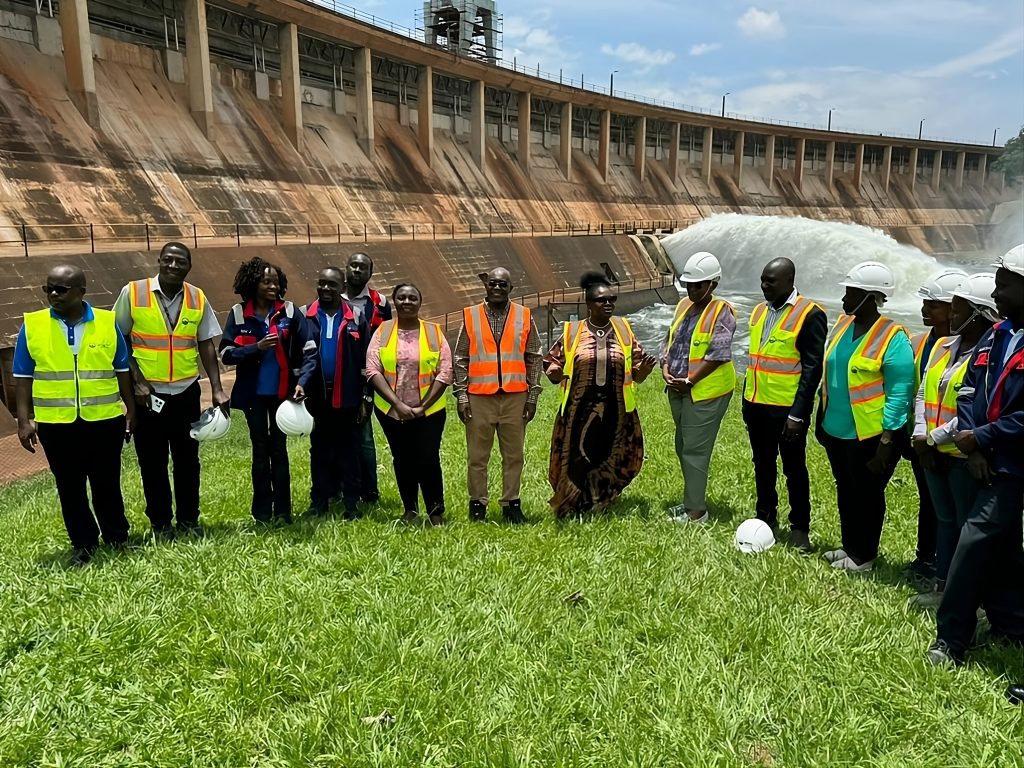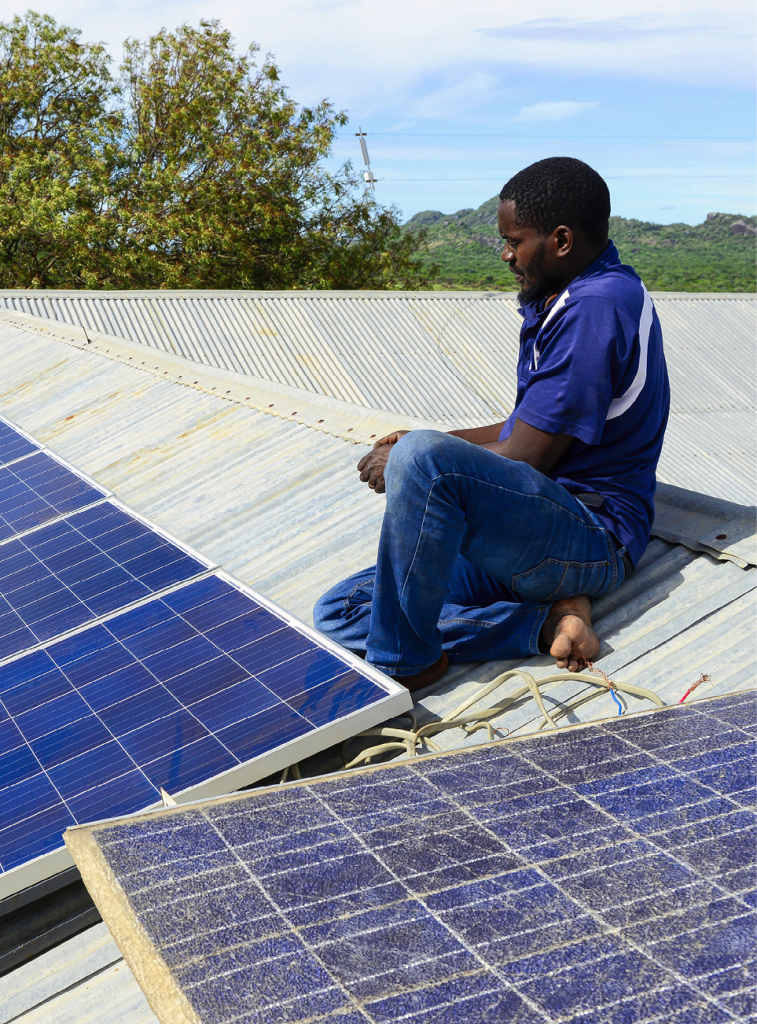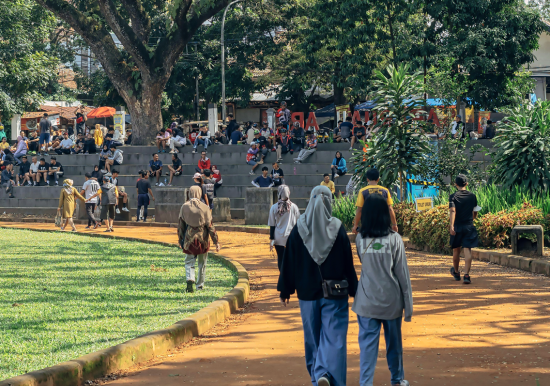
Coordinating Excellence & Engineering Performance in Uganda
Uganda performs well in the CGGI for the Coordination indicator (23rd out of 113 countries in 2024). A key government leader in Uganda’s dynamic energy sector reflects on the task of establishing integrated coordination processes and an effective, well-aligned organisational culture.
Coordination is a challenge for many public sector institutions globally. What aspects of the Ugandan system of governance contribute to its good performance in this area?
What stands out for Uganda is the structure and coordination within the government. This flows directly from our National Development Plan 3, which is organised into thematic programmes based on key drivers for socio-economic transformation, which include alleviating poverty and sustainable development.

The Plan sets out clear targets and key performance indicators for every sector to achieve. At the national level, the Office of the Prime Minister monitors the performance of programmes that are part of the Plan, and everyone reports on their key deliverables to this Office. These targets cascade down to all government agencies, so every Ministry must have a strategic plan that aligns with the National Development Plan.
Beyond the strategic plan, we have a clear institutional structure that supports us in both our execution and coordination—and Ministries are at the heart of coordinating their respective sectors. In my own Ministry, I have about 12 other agencies and authorities to oversee, ensuring that they too are aligned to the national development goals. It is vital to have clear coordination across the sector. Otherwise, it is very easy for these autonomous agencies to stray from the national vision.
It is one thing to have a strategy; it is another to ensure that you implement it. One of the ways we do this is by monitoring and evaluating the entities under our charge. We ensure that, at the operational level, our teams are always in touch with the agencies to ensure that any emerging issues are addressed in a timely way. Every quarter, the agencies present their performance reports and challenges to the Ministry, and together we work to resolve them.

In coordinating the staff and organisations under your charge so they contribute to the greater national strategy, what aspects do you pay most attention to?
We pay attention to organisational culture because we know that culture can eat strategy for breakfast. My Ministry is quite big: I supervise 600 staff at the centre, and if you add up all the satellite agencies, it can go up to 1,000 employees. How do we ensure the cohesion of the entire team? How do we have them buy into the targets we have set?
We make sure we cascade our values and vision to our affiliated entities, so that they are all aligned with the Ministry. We check that they have the necessary systems and processes in place. We also encourage them to pay attention to performance management: for example, we are rolling out a Balanced Scorecard for our commercial companies. Having successfully piloted it with our national oil company, we hope to implement this throughout all our entities eventually, so they have a clear system to ensure their governance, performance, and organisational productivity are as required.
It is one thing to have a strategy; it is another to ensure that you implement it.
When I came into the Ministry, I realised there were some gaps in the appraisal system. Performance was being measured broadly with no clear key performance indicators. So I brought this to the attention of the heads of the public service, who are now initiating a review of all performance tools. The good thing with the statutory agencies, however, is that they can have their own bespoke performance management system. For instance, the national oil company has adopted a 360-degree performance evaluation, so staff are assessed not only by their supervisors but also by their entire group, including their supervisees. I sit on the boards of some of these entities and we have been keen to make sure these systems are working effectively. We continue to look for emerging tools that can help us manage and improve our performance.
We also pay attention to issues of integrity and ethical leadership. Nationally, we have been grappling with corruption and the abuse of national resources. This is one of the day-to-day challenges towards which I have put in the most effort. For us to coordinate better, our financial resources must be put to good use. So we are strengthening our internal controls when it comes to financial transactions, transparency, and accountability.
What other steps are you taking to improve your systems and processes?
We are pursuing digitalisation in a big way. We now have an integrated financial management system, which means you cannot just take out money from the system: everything is clearly tracked. My Ministry is also one of the pioneers of the government’s electronic procurement system. Because we were among the first to do this, there was resistance and I had to drive a lot of the change management to help staff appreciate that this is for our own good. It would help us be more transparent, accountable, and ease our work. A year later, they have been persuaded that it is a useful tool. Such digital solutions help us ensure better coordination—we can now coordinate directly with the Ministry of Finance when they release funds to us, for instance.
Critically, we also pay attention to ongoing capacity building, upskilling and reskilling our staff. I am always keen to bring in young people into the service. We want them to bring in fresh perspective and energies and skills we will need in the future, particularly in addressing global challenges and climate change, for instance. We want them to mellow without being absorbed into the prevailing older work culture.
Also, we can coordinate well internally, but if we are not in tandem with the rest of the citizenry and our external stakeholders, including our financial partners, then our coordination will not be complete.

So we are keen on ensuring robust external relations. For example, as part of our National Development Plan process, we organise an annual review that all the citizen representatives are invited to, and we present our performance for that year. Of course they critique it, which is valuable feedback that we factor in as we plan for the subsequent financial year. On an ongoing basis, we engage at the grassroots level to ensure that citizens are aware of what we are doing. For our financing partners, we organise quarterly meetings to give progress reports on our projects with them. Each new financial year, I meet with them and recast our vision and plans for the new year.

Coordinating Change While Keeping the Lights On
My first major assignment as Permanent Secretary was to integrate the Rural Electrification Agency back into my Ministry. Integrating has to be done in consonance with many other entities—you must work with the Minister of Public Service and with the Public Service Commission, you must have the different approvals from the Cabinet and Parliament and so on. So there was a lot to be done within a space of about a year—from August 2021 to October 2022.
I quickly identified a robust team to execute this task, and knew I had to give them very clear instructions. There was no time to waste. We worked out a clear roadmap: What did this integrating entail? How do you move human resources and assets back into the Ministry? We carried out the planning, so we knew exactly what we were taking on.
One key consideration was business continuity. Electricity is a key service. Citizens do not care about government reform or organisational transition. You need to keep the lights on. So we put in place a business continuity plan that would ensure minimum disruption of service delivery.
The integrating process itself called for a lot of change management. We took on most of the defunct Agency’s staff but had to let go about 5% of them. Those we took on had to be paid on Public Service terms, which meant a decline in their salaries. Transiting the teams even meant relocating them physically to Ministry premises. We also had to harmonise their organisational norms with that of the Public Service.
All this called for courageous leadership, which involved engaging with stakeholders from the Ministry and former Agency staff to Cabinet and Parliament. As Permanent Secretary, I ensured that I fronted these encounters as the face of the reform and took the beatings, as it were, on behalf of my staff.
Today, the department is fully settled as a department of Rural Electrification in the Ministry, and we are already seeing the benefits of the reform. Rural electrification is critical because the largest proportion of the population of this country is in the rural areas. Integrating this function back into the Ministry means it is now easier to coordinate such services centrally. Decision-making is faster. And we closely supervise it on a day-to-day basis.
Even our financing partners, who were initially sceptical of this reform, are now seeing the clarity in leadership. As a result, our Rural Electrification programme is receiving good financing. This speaks well to our brand as a transparent and accountable entity, determined to do the right thing in serving the population.
This constant hive of activity and coordination will, I am sure, be the same in any other Ministry in Uganda. The political leadership sets the direction, but as the Permanent Secretary, I am the technical leader and accounting officer for my entire Ministry. How its resources are used falls on me. I need a great team, but I must orchestrate things, and I must set an example.
We can coordinate well internally, but if we are not in tandem with the rest of the citizenry and our external stakeholders, then our coordination will not be complete.
You were trained as an engineer. How has this informed your work as a civil servant?
I believe that engineers make great leaders. I started as a junior chemical engineer right out of school. After rising through the ranks, I became Permanent Secretary about two-and-a-half years ago. In the course of my 17 years in this Ministry, I have had the privilege of having done almost everything. It has been a good preparation for my current role.
Over the years, I have come to realise that my engineering background plays a significant role in shaping who I am as a leader. I regularly receive feedback that I pay attention to detail, for instance. Engineering is also about what works—so when I lead an organisation, my focus and our ethos is in making things work. When something is not going right in the organisation, we do something to fix it.
Many people do not think engineers are good communicators. But our training teaches us how to communicate well: how to present our project outcomes and designs in groups, for instance. This is a good foundation for communicating with clarity, and for working well in teams, which is what engineers do. We carry this into the workplace and ensure that our teams function well
Another aspect of engineering is professionalism: when an experiment does not yield the right outcome, you do not fudge the results. You report those results and explain why it did not work out. I espouse this in my workplace as well, and I lead my teams this way.
What ongoing challenges are you looking to address next?
The most critical challenge is continuing to mobilise the required financial resources. We have an ambition to achieve universal access to electricity, which will require enormous investment. We need to be associated with transparency and accountability, so that our development partners will support us in this endeavour. At the same time, we continue to also mobilise resources through our Treasury. Financing will be vital to unlocking our vision for the next 20 years.
Another challenge has to do with ongoing global dynamics around climate change and the energy transition. There is a rhetoric that fossil fuels must be phased out. But Uganda has just discovered petroleum. How might we be supported to ensure we exploit these resources sustainably, so we can unlock finances to invest in other sectors? We have been keen to structure and develop our petroleum programme in a sustainable manner, so that we address critical issues of environmental and social governance. We believe that we have an opportunity today to deploy cleaner technologies, not the old technologies of the 1940s or 1960s, and to do it sustainably, while reducing our carbon footprint. So we need to come out with clarity on our development agenda for petroleum resources, in view of the targets we have set in the Paris Agreement on climate change.
Internally, we have to continue reorganising ourselves to ensure our coordination with our agencies keeps improving. Where there are gaps in communication, we ensure monitoring and evaluation is done in a manner that fosters productivity. Another prevailing challenge in the Public Service is how to retain staff. We are making sure we keep our staff motivated and staff attrition rates low. Of course, we grapple with the issue of salaries in government service, but we try to ensure that there are other attractive benefits, in terms of career development and making a difference to the country.

IRENE BATEEBE
Permanent Secretary, Ministry of Energy
and Mineral Development, Uganda.
Irene Bateebe has over 15 years’ experience in Uganda’s energy and petroleum sector. She has led teams in developing renewable energy solutions in the regulation, financing, and development of large infrastructure projects, and in overseeing the restructuring and setting up of institutions in the industry. Having held several key leadership positions in the sector, she currently serves as Permanent Secretary in the Ministry of Energy and Mineral Development. As Accounting Officer for the Ministry, she is responsible for establishing robust systems and controls to ensure transparency, accountability, and performance in the sector.
More Stories


2024 Chandler Good Government Index Insights

